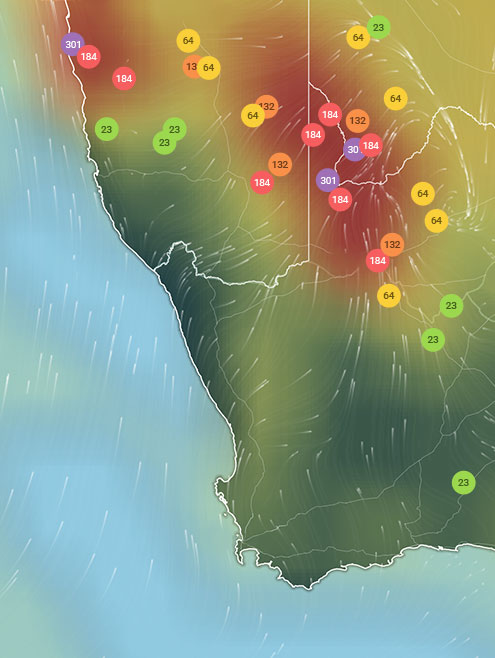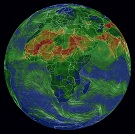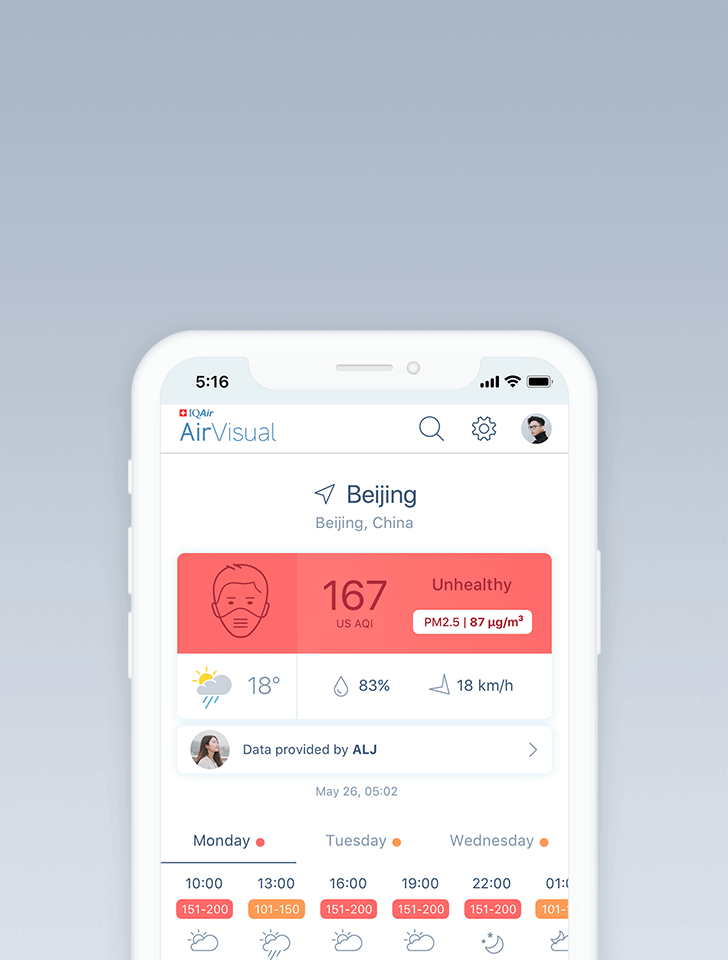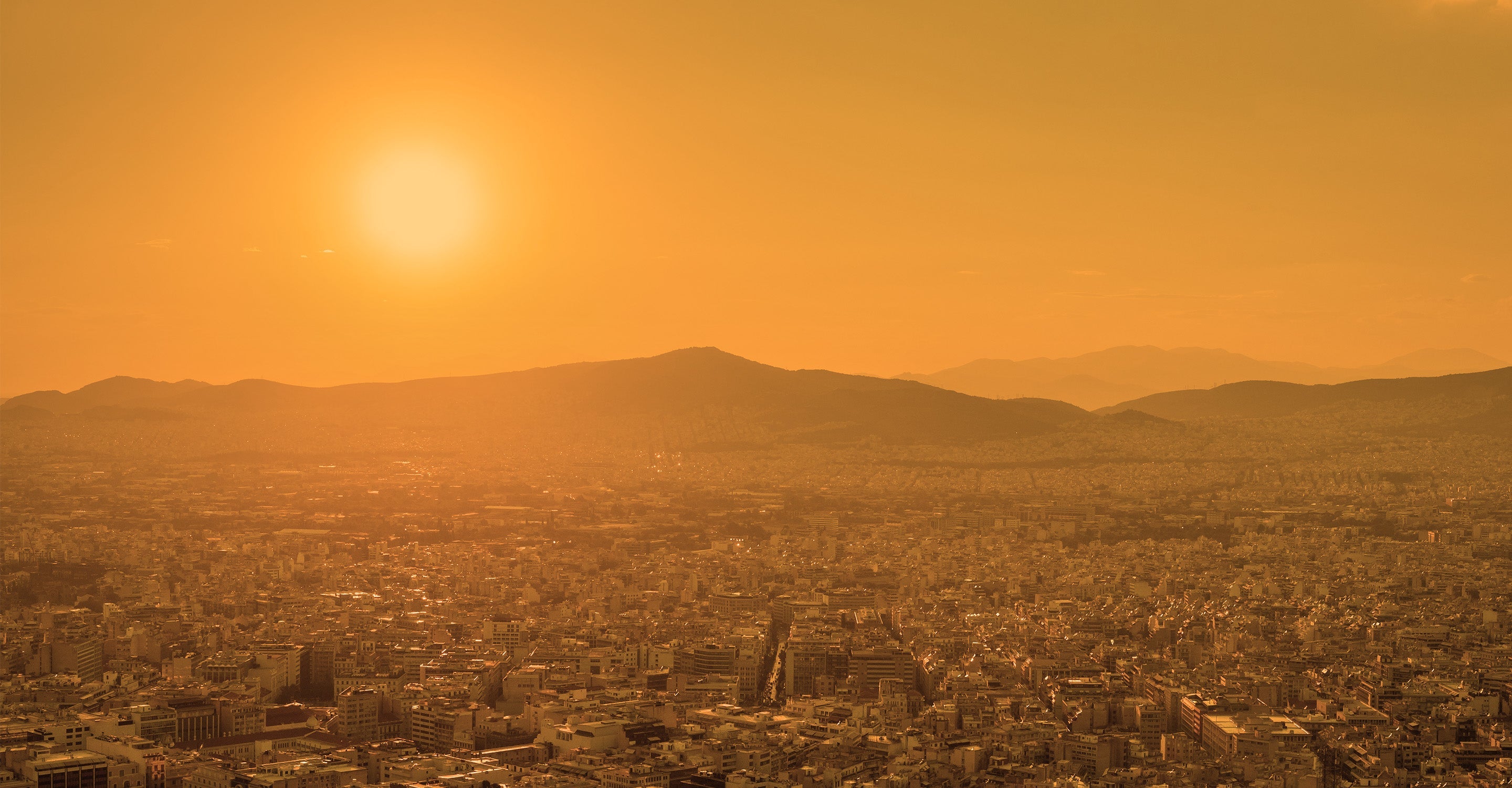Air quality in Kashgar
Air quality index (AQI) and PM2.5 air pollution in Kashgar
3.7K people follow this city

Kashgar Air Quality Map
Real-time Kashgar air pollution map
Weather
What is the current weather in Kashgar?
| Weather | Broken clouds |
| Temperature | 51.8°F |
| Humidity | 51% |
| Wind | 2.3 mp/h |
| Pressure | 29.9 Hg |
live aqi city ranking
Real-time China city ranking
| # | city | US AQI |
|---|---|---|
| 1 | Kashgar, Xinjiang | 351 |
| 2 | Wenshan, Yunnan | 158 |
| 3 | Dalianwan, Liaoning | 154 |
| 4 | Suixi, Anhui | 154 |
| 5 | Bengbu, Anhui | 151 |
| 6 | Yingkou, Liaoning | 149 |
| 7 | Honghe, Yunnan | 146 |
| 8 | Jinghong, Yunnan | 139 |
| 9 | Lincang, Yunnan | 139 |
| 10 | Zhoukou, Henan | 139 |
(local time)
SEE WORLD AQI RANKING3D animated air pollution map

live Kashgar aqi ranking
Real-time Kashgar air quality ranking
| # | station | US AQI |
|---|---|---|
| 1 | Kashen diqu xunjing dadui | 394 |
| 2 | Veteran bureau , Kashgar prefecture | 338 |
| 3 | Kashgar District | 297 |
(local time)
SEE WORLD AQI RANKINGUS AQI
338
live AQI index
Hazardous
Overview
What is the current air quality in Kashgar?
| Air pollution level | Air quality index | Main pollutant |
|---|---|---|
| Hazardous | 338 US AQI | PM10 |
| Pollutants | Concentration | |
|---|---|---|
| PM2.5 | 133µg/m³ | |
| PM10 | 455µg/m³ | |
| O3 | 14µg/m³ | |
| NO2 | 52µg/m³ | |
| SO2 | 3µg/m³ | |
| CO | 700µg/m³ | |
PM2.5
x26.6
PM2.5 concentration in Kashgar is currently 26.6 times the WHO annual air quality guideline value
Health Recommendations
What is the current air quality in Kashgar?
| Avoid outdoor exercise | |
| Close your windows to avoid dirty outdoor air GET A MONITOR | |
| Wear a mask outdoors GET A MASK | |
| Run an air purifier GET AN AIR PURIFIER |
Forecast
Kashgar air quality index (AQI) forecast
| Day | Pollution level | Weather | Temperature | Wind |
|---|---|---|---|---|
| Sunday, Apr 28 | Unhealthy for sensitive groups 113 AQI US | 60.8° 48.2° | ||
| Monday, Apr 29 | Hazardous 478 AQI US | 59° 50° | ||
| Tuesday, Apr 30 | Hazardous 427 AQI US | 57.2° 50° | ||
| Thursday, May 2 | Unhealthy for sensitive groups 133 AQI US | 68° 50° | ||
| Friday, May 3 | Moderate 61 AQI US | 75.2° 53.6° | ||
| Saturday, May 4 | Moderate 71 AQI US | 75.2° 57.2° | ||
| Sunday, May 5 | Moderate 62 AQI US | 77° 62.6° | ||
| Monday, May 6 | Moderate 68 AQI US | 82.4° 62.6° | ||
| Tuesday, May 7 | Moderate 69 AQI US | 84.2° 68° |
Interested in hourly forecast? Get the app
AIR QUALITY ANALYSIS AND STATISTICS FOR Kashgar
Is there a bad level of air pollution in Kashgar?
Kashgar is a city located in the westernmost region of China, part of southern Xinjiang. It shares borders with countries such as Afghanistan, Pakistan and Tajikistan. This has led to a long history of Kashgar being an important trade route, part of the famous silk road and still maintaining a location of great importance today.
In regards to its air quality levels, this location unfortunately gives way to some severe levels of pollution, with this whole region having come under a compounded situation of both massive increases in infrastructure, factories, power plants and other similar industrial areas, as well as being subject to disastrous sandstorms, arising as a result of having close proximity to the Taklamakan desert. Frequent sandstorms can be whipped up out of nowhere and cause massive spikes in particulate matter, both of the fine (PM2.5) and coarse, or larger variety (PM10).
In April of 2021, Kashgar was seen with a US AQI reading of 146, putting it into the ‘unhealthy for sensitive groups’ bracket. Over the course of a single day at the same time it was also seen with US AQI readings that went up even further into the ‘unhealthy’ bracket, although these were more transient in nature. However, as it stands the pollution levels are high enough to cause significant damage to a majority of the population, with certain groups such as young children, babies, pregnant mothers and the elderly all being particularly vulnerable to the highly damaging effects that breathing large amounts of both finely ground materials as well as certain chemical compounds, more of which will be discussed in short.
Regarding the air quality levels recorded over the course of 2020, Kashgar came in with a PM2.5 reading of 81 μg/m³, an extremely high reading that once again placed it in the ‘unhealthy’ ratings bracket, which requires a PM2.5 reading of anywhere between 55.5 to 150.4 μg/m³ to be classified as such. This reading placed it amongst the top most polluted cities for 2020, coming in at 2nd place out of all cities ranked in China, as well as 15th place out of all cities ranked worldwide, indicating that Kashgar has some very serious pollution problems that will need well thought out and long term solutions implemented in order to reduce such high numbers, due to the meteorological aspect of its poor air quality.
Why is Kashgar so polluted?
As mentioned briefly, Kashgar sees a large amount of its pollution coming mainly from natural sources (although human activity can also worsen such events due to certain actions taken causing rapid erosion of earthen or sandy areas, leading to large amounts of dust, sand and other particulate matter being released). Furthermore, there is also the industrial aspect to take into consideration, with rapid industrialization taking place in this corner of China meaning that there will be an unprecedented rise in tall buildings, pollution producing industrial areas and other measures that cause both the emission and entrapment of pollution and hazardous particulate matter (with a sudden explosion in tall buildings aiding in the accumulation of dust and chemical pollutions, due to a lack of prevailing winds being able to make their way into these urban corridors).
Vehicle fumes would also be playing a major role here, with many outdated and ancient motors still being in use on the roads of Kashgar, leaking far greater amounts of oil vapors and other types of air contaminants than a newer or cleaner counterpart would. With an increase in industry and population size also comes the need for heavy duty, or freight vehicles, which include among them ones such as lorries and trucks. Due to their greater weight and often running on diesel fuels, they can also contribute massively to pollution levels, leaving trails of noxious exhaust fumes in their wake as they move in and out of the city.
Summer months can also see the formation of secondary pollutants such as ozone (O3), which arises as a result of the various oxides of nitrogen (NOx) and other gases or chemicals being exposed to sunlight, forcing a chemical reaction to take place and leave the area covered in ground level ozone, or smog as it is better known. Other sources include construction sites, the burning of wood and charcoal in homes, as well as road repairs (and even poorly maintained roads) all contributing to the massive pollution levels seen in Kashgar.
What are some health issues caused by polluted air in Kashgar?
Some health issues that can be brought on by breathing such badly polluted air include a variety of surface level ailments, that include skin problems such as atopic dermatitis, acne and eczema, to dry coughs, chest pain and throat infections. More serious conditions from long term exposure to both PM2.5 and PM10 particles include scarring of the lung tissue, which can lead to higher instances of lung cancer, reduced lung function, as well as further susceptibility to respiratory issues such as pneumonia, bronchitis and emphysema.
When is the air quality level at its most polluted in Kashgar?
Observing the data collected over the course of 2020 as a reference point, it can be seen that Kashgar had its period of highest pollution in the early portion of the year, with January through to April having the most elevated levels of PM2.5. Of note is that while the pollution levels did drop for the rest of the year, they were still high enough to be very dangerous.
The readings for the first 4 months of the year were 101.9 μg/m³, 109.8 μg/m³, 167.8 μg/m³ and 120 μg/m³ respectively. This made March the most polluted month of the year by a large margin, with its reading of 167.8 μg/m³ placing it in the ‘very unhealthy’ ratings bracket, which requires a PM2.5 reading of anywhere between 150.5 and 250.4 μg/m³ to be classified as such.
What are some types of pollution found in Kashgar?
Some of the main pollutants found in Kashgar would be ones such as the many different types of fine and coarse particles, which include finely ground silica and soot particles, or black carbon as it is also known (both of which have known carcinogenic effects when inhaled), as well as dust, finely ground gravel and earth, and even heavy metals such as lead and mercury.
Cars would release large amounts of both nitrogen and sulfur dioxide, (SO2) and (NO2), which can also find their emanation from power plants and factories, as well as the burning of firewood in homes. These combustion processes can also release large amounts of volatile organic compounds (VOCs), which include among them chemicals such as benzene, toluene and formaldehyde.
Kashgar air quality data attribution
1 Data source





